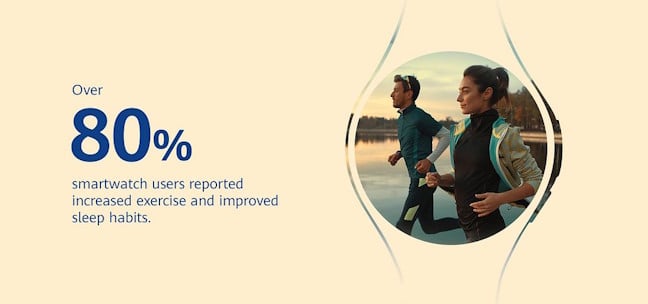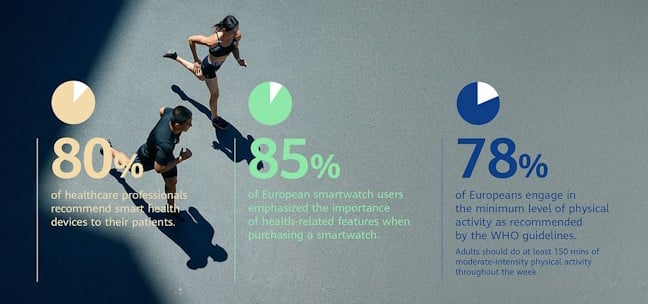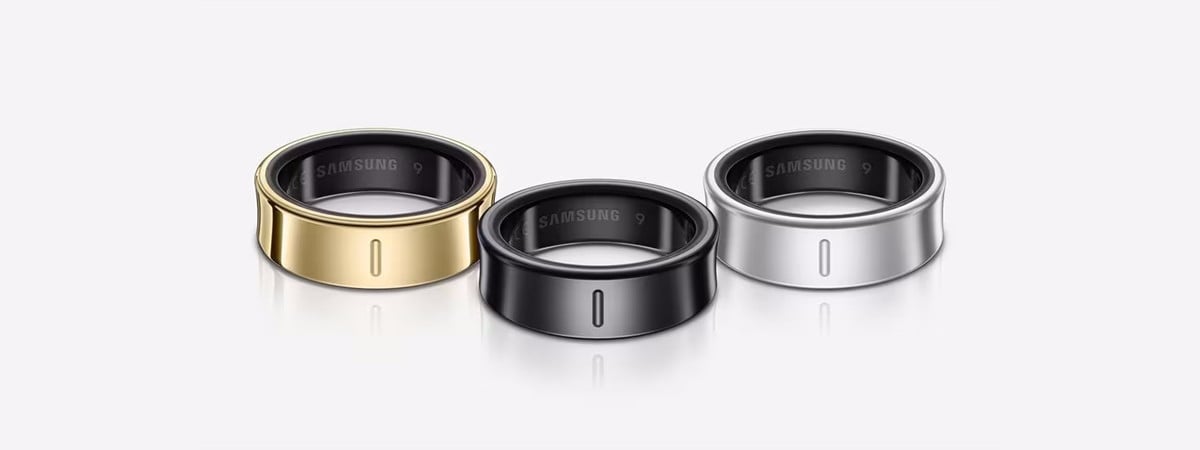
Smartwatches have quickly evolved from step counters and expensive accessories into useful health and wellness tools. The sophisticated wearable devices available today can be real assets to those who want to take real control of their health. A new study confirms just how much of a difference smartwatches can make. According to the 2025 European Health Behavior Survey, commissioned by HUAWEI, over 80% of smartwatch users report that their devices have helped them improve their daily habits, from exercising more and sleeping better to paying closer attention to stress and heart health. With both users and doctors recognizing the value of the health data provided, smartwatches are becoming an important aspect of how people across Europe manage their well-being. Here are some of the most interesting statistics revealed by this survey:
Most smartwatch users report positive lifestyle changes
Ipsos conducted the 2025 European Health Behavior Survey for HUAWEI in eight European countries. It included about 1000 respondents aged 18–64 and revealed some interesting data:

Most smartwatch users reported exercising more
Image source: HUAWEI
- Awareness is at an all-time high, as 78% of Europeans understand their lifestyle choices can affect their health. 85% of respondents value health features and want them on their smartwatches.
- Over 80% of smartwatch users changed their behavior based on the insights and features built into their devices. This improved their sleep habits and workout schedules.
- Doctors are also backing smartwatches. Healthcare professionals are not only recommending wearable health devices, but 93% already had patients come in based on the data gathered by smartwatches. Early health detection may be one of the most important benefits of wearing a tracker or smartwatch. By alerting users to potential issues sooner, these devices support prevention over treatment, helping people address problems before they become serious.
- 68% of the users in the survey reported a focus on tracking their physical activity. Just 41% have a step goal, with the average target at around 7000-8000 steps.
- Over half of the users (53%) monitor their heart rate and pulse daily, and 46% consider heart health monitoring the most important health feature on a smartwatch.

Interesting statistics about European smartwatch users
Image source: HUAWEI
More than half of the European population doesn’t use a smartwatch or a wearable device. However, the benefits are hard to ignore, so more and more people will probably turn to this type of tracking technology in an attempt to stay healthy and fit.
Furthermore, the latest smartwatches and fitness trackers, such as the HUAWEI WATCH 5, which we recently reviewed here on Digital Citizen, include advanced health features like continuous heart rate monitoring, blood oxygen saturation (SpO₂) tracking, ECG (electrocardiogram) capabilities, and even irregular heartbeat detection. A few models, such as the HUAWEI WATCH D2, even offer blood pressure monitoring and body temperature sensors, giving users deeper insights into their overall wellness. As both users and the technology evolve and grow (old 🙂), we’ll probably end up sending our latest wearable-generated data when making a doctor’s appointment.
Do you use a wearable to monitor your health?
There’s no doubt that smartwatches and similar health trackers can have a positive effect on health. But are you on board? Opinions are split in our Digital Citizen team. My colleague, Codruț, owns a smartwatch but doesn’t always act based on the data provided. My boss, Ciprian, loves detailed health reports so much that I’ve even seen him wear two smartwatches simultaneously. 😮 Truth be told, he was testing one of them for a review, but I like my version better. 🙂 As for me, I’ve tried using health trackers a couple of times over the years. I found the first one pretty uncomfortable, and my skin literally broke out after wearing the second one for a few months. It appears I’m allergic to willingly offering up details about my life and schedule, so I’ll stick to regular health checks and exercising daily. What about you? Do you own a smartwatch or a health tracker? Which one? How do you use it? Let me know your opinion in the comments section.


 04.07.2025
04.07.2025 


